| Date | Text | |
|---|---|---|
30 Nov 2002
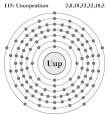
ununpentium |
ununpentium (chemistry) A new chemical element, ununpentium, is first observed. |
|
30 Nov 2002
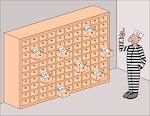
100 prisoners problem |
100 prisoners problem (mathematics) Danish computer scientist Peter Bro Miltersen poses the 100 prisoners problem in probability theory. |
|
30 Nov 2002
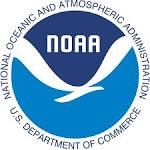
NOAA |
NOAA (meteorology) NOAA hurricane experts issue first experimental Eastern Pacific Hurricane Outlook. |
|
30 Nov 2002

SpaceShipOne |
SpaceShipOne (technology) December 17 - SpaceShipOne, piloted by Brian Binnie, makes its first rocket-powered flight, the first privately-built craft to ever achieve supersonic flight. |
|
30 Nov 2002

Intel |
Intel (technology) Intel releases the Pentium M microprocessor. |
|
30 Nov 2002

Turing Award for Computing |
Turing Award for Computing (awards) Turing Award for Computing: Alan Kay |
|
30 Nov 2002

Abel Prize in Mathematics |
Abel Prize in Mathematics (awards) Abel Prize in Mathematics: Jean-Pierre Serre |
|
30 Nov 2002
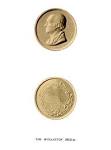
Wollaston Medal for Geology |
Wollaston Medal for Geology (awards) Wollaston Medal for Geology: Ikuo Kushiro |
|
01 Feb 2003
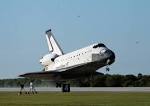
Space Shuttle Columbia |
Space Shuttle Columbia (space exploration) Space Shuttle Columbia disintegrates over Texas upon reentry killing all seven astronauts on board. |
|
14 Feb 2003

Dolly the sheep |
death Dolly the sheep Dolly the sheep (b. 1996), the world's first cloned mammal. |
|
26 Feb 2003

businessman |
businessman (medicine) A US businessman is diagnosed with the first known case of SARS in Hanoi, Vietnam, by WHO doctor Carlo Urbani. |
|
01 Mar 2003

digital camera |
digital camera (technology) The world's first digital camera with an organic light-emitting diode (OLED) display is released by Kodak. |
|
13 Mar 2003

human |
human (anthropology) The journal Nature reports that 350,000-year-old upright-walking human footprints have been found in Italy. |
|
29 Mar 2003

Carlo Urbani |
death Carlo Urbani Carlo Urbani (b. 1956), physician, discoverer of SARS. |
|
31 Mar 2003

Calder Hall nuclear power station closed |
Calder Hall nuclear power station closed In 2003, Calder Hall nuclear power station was closed at the end of an almost 47 years of service since it was opened on 17 Oct 1956. It was the world's first commercial nuclear power station that was connected to a national electricity grid. |
|
17 Apr 2003

Robert Atkins |
death Robert Atkins Dr. Robert Atkins (b. 1930), nutritionist. |
|
04 May 2003

Idaho Gem |
birth Idaho Gem Idaho Gem, the world's first cloned mule. |
|
28 May 2003

Prometea |
birth Prometea Prometea, the first cloned horse. |
|
28 May 2003

Ilya Prigogine |
death Ilya Prigogine Ilya Prigogine (b. 1917), chemist, Nobel laureate in chemistry. |
|
28 May 2003
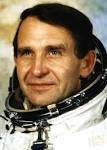
Oleg Makarov |
death Oleg Makarov Oleg Makarov (b. 1933), cosmonaut |
|
02 Jun 2003
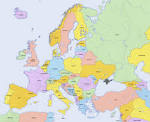
European |
European (space exploration) The first European Mars mission Mars Express launched. |
|
30 Jul 2003

Volkswagen Beetle |
Volkswagen Beetle (technology) The last old-style Volkswagen Beetle rolls off its production line in Puebla, Puebla, Mexico. |
|
29 Aug 2003

Horace W. Babcock |
death Horace W. Babcock Died 29 Aug 2003 at age 90 (born 13 Sep 1912). Horace Welcome was an American astronomer, son of Harold Babcock. Working together, they were the first to measure the distribution of magnetic fields over the surface of the Sun. Horace invented and built many astronomical instruments, including a ruling engine which produced excellent diffraction gratings, the solar magnetograph, and microphotometers, automatic guiders, and exposure meters for the 100 and 200-inch telescopes. By combining his polarizing analyzer with the spectrograph he discovered magnetic fields in other stars. He developed important models of sunspots and their magnetism, and was the first to propose adaptive optics (1953). |
|
09 Sep 2003
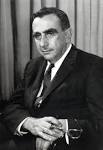
Edward Teller |
death Edward Teller Edward Teller (b. 1908), physicist, inventor of the hydrogen bomb. |
|
14 Sep 2003
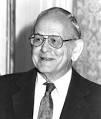
Garrett Hardin |
death Garrett Hardin Died 14 Sep 2003 at age 88 (born 21 Apr 1915). American ecologist, microbiologist and author known for his classic essay on ecology and social ethics Tragedy of the Commons (published in Science, 13 Dec 1968), a parable about farmers who, allowed to graze their cattle in one field as much as they wanted to, each acted in their own self-interest, and the field was destroyed. He extended the idea of self-interest beyond the individual to households, villages, companies or nations. His concept of the commons includes ecosystems, rivers, oceans, organisms or mineral resources with actions such as over-fishing, deforestation and greenhouse gas emissions. He concluded that the Earth will likewise be destroyed by overpopulation. Hardin was a founding member of Planned Parenthood. He died by suicide when in frail health. |
|
01 Oct 2003

crested ibis |
crested ibis (biology) The last native wild crested ibis in Japan dies. |
|
11 Oct 2003

Franklyn Perring |
death Franklyn Perring Died 11 Oct 2003 at age 76 (born 1 Aug 1927). English botanist and conservationist, who was was one of the most influential botanists of his generation. He made a significant contribution to conservation as the co-author (with Max Walters) of the Atlas of the British Flora (1962), one of the most important British natural history publications of the 20th century. This compilation precisely was initiated in 1954 by the Botanical Society of the British Isles (BSBI) to record the incidence of all British flowering plants. Perring was a senior member of the team of researchers. Using a map of the country in 10 km grid squares, each square was visited, and the plants there recorded. Later, he encouraged zoologists to make similar atlases of distribution for mammals, butterflies, and other life forms. |
|
13 Oct 2003

Bertram N. Brockhouse |
death Bertram N. Brockhouse Died 13 Oct 2003 at age 85 (born 15 Jul 1918). Canadian physicist who developed neutron diffraction techniques used for studying the structure and properties of matter for which he shared the Nobel Prize for Physics in 1994 (with American physicist Clifford G. Shull). By devising instrumentation to measure the energy of neutrons scattered from a solid material, Brockhouse provided insight to its atomic structure. It made possible advances in semiconductor technology. His Triple-Axis Neutron Spectrometer is now widely used not only to investigate atomic structures, but also virus and DNA molecules. |
|
13 Oct 2003

open access |
open access (biology) The open access scientific journal PLoS Biology from the Public Library of Science, commences operation. |
|
15 Oct 2003
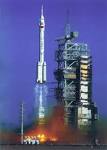
Shenzhou 5 |
Shenzhou 5 (space exploration) The People's Republic of China launches Shenzhou 5, their first manned space mission. |
|
16 Oct 2003

gene therapy |
gene therapy (medicine) China becomes the first country to approve the commercial production of a gene therapy. (Nature) |
|
24 Oct 2003
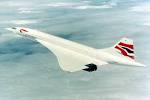
Concorde |
Concorde (technology) Concorde makes its last flight, bringing the era of civilian supersonic travel to a close for the foreseeable future. |
|
20 Nov 2003

baleen whale |
baleen whale (biology) A new species of baleen whale, Omura's whale (Balaenoptera omurai), is described by Japanese scientists in the journal Nature. |
|
22 Dec 2003

John Holter |
death John Holter Died 22 Dec 2003 at age 87 (born 1 Apr 1916). American inventor of a pioneering valve used in the treatment of hydrocephalus (“water on the brain”). Shortly after birth (1955), his son suffered from hydrocephalus. Holter learned from surgeons Eugene Spitz and Frank Nulsen that a suitable valve to drain fluid from the brain could maintain normal cranial pressure. To save his son, Holter invented a pressure-sealing valve made from silicone to avoid clogging problems. He subsequently refined and patented the device. Spitz and Holter set up a company to manufacture the shunts using Silastic silicone. The Spitz-Holter valve has helped millions around the world since the late 1950s. Holter later created other medical devices, including dialysis pumps, artificial heart valves and finger tendons. |
|
25 Dec 2003
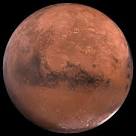
Mars |
Mars (space exploration) Mars Express enters orbit around Mars. Its lander, Beagle 2, lands on the surface but is unable to deploy its communications equipment and its fate is discovered only in 2015. |